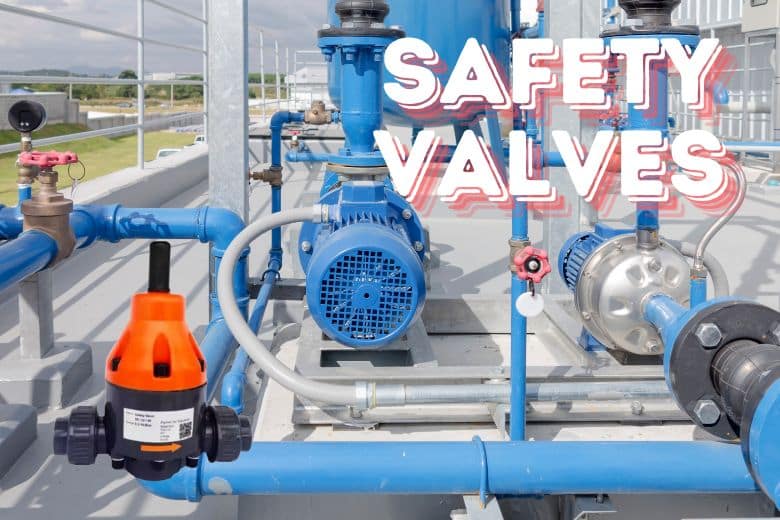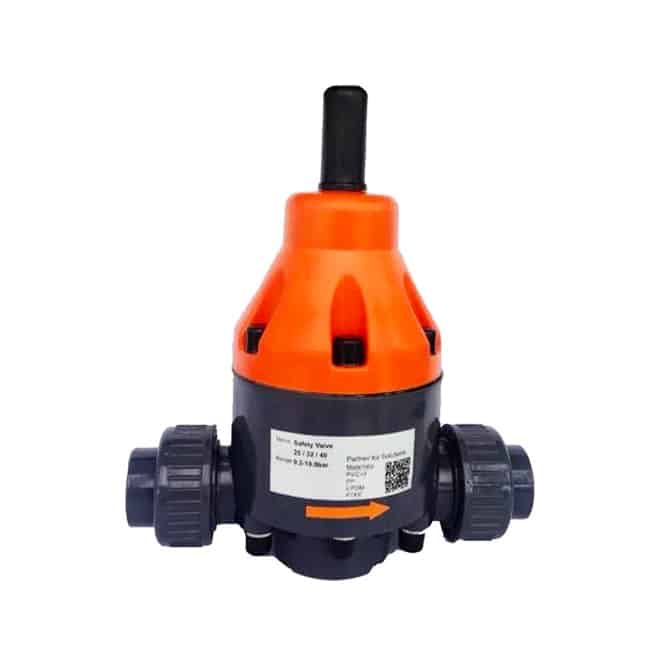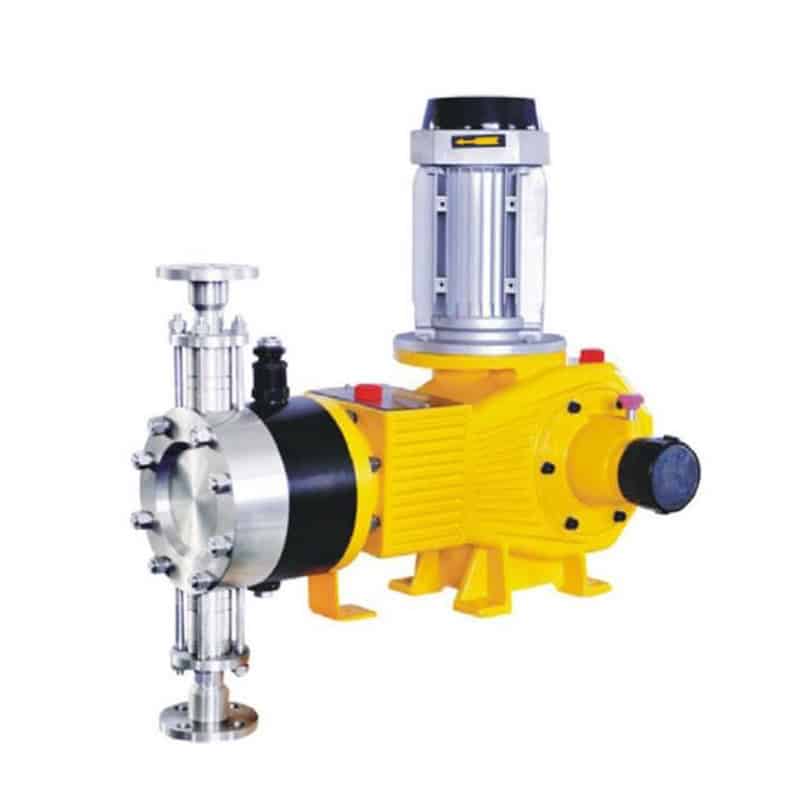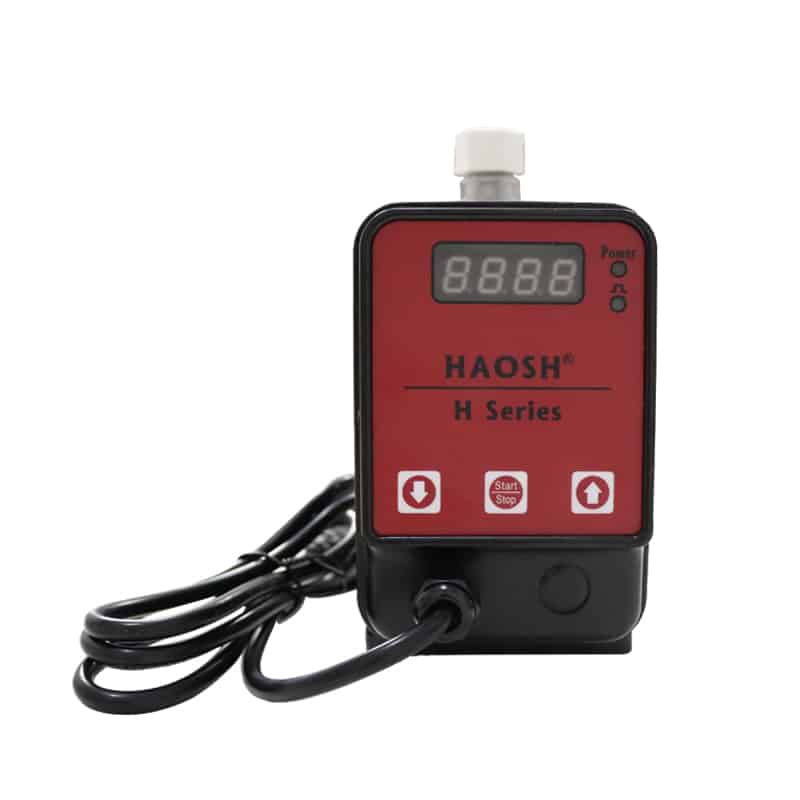Safety Valve For Pumps

Pumps are indispensable equipment in many industrial and commercial applications that transfer liquids or gases. However, overloading or other abnormal conditions can cause pump pressures to exceed safe limits, posing a danger to equipment and personnel. In such cases, safety valves are critical in protecting pumps and piping systems from damage.
Safety Valve Definition
A safety valve is a mechanical device, usually installed on a pressure vessel, piping system, or pump, that is used to open automatically when the pressure inside the system exceeds a set value, releasing excess pressure to prevent equipment damage or explosion. Its function is to protect the system from the hazards of excessive pressure.

Safety Valve Components
Safety valves are usually composed of a valve body, a valve cover, a spring, a valve seat, and a spool. When the internal pressure of the system exceeds the pressure value set by the safety valve, the spring is compressed by the pressure and causes the spool to leave the seat, thus opening the valve and releasing the pressure. This effectively prevents equipment damage due to overloading and ensures safe operation of the system.
Uses of Safety Valves
- Protection of equipment safety: When the pressure inside the system exceeds the set value, the safety valve will automatically open to release the excess pressure to protect the equipment from damage or explosion.
- Prevent pressure overload: In the piping system or equipment operation, there may be unforeseen circumstances that lead to pressure overload, such as valve closure, pump operation overload, and so on.
- Avoid equipment damage: When the equipment is subject to external influences or abnormal operation the presence of safety valves can protect the equipment from damage, prolonging the service life of the equipment.
- Ensure stable operation of the system: The installation of safety valves can ensure that the system operates within the normal operating range, reducing downtime and maintenance costs.
Types of safety valves
- Spring-loaded safety valves: These are one of the most common types of safety valves and are used in a variety of pump systems. They apply pressure to the valve by means of a spring and open the valve to relieve excess pressure if the system pressure exceeds the set value.
- Load-type safety valves: Load-type safety valves utilize system pressure to apply force directly to the valve, rather than through a spring. When the system pressure exceeds the set value, the valve opens and releases the pressure. This type of safety valve is commonly used in high pressure or high flow pump systems.
- Diaphragm type safety valves: Diaphragm type safety valves use a diaphragm as a sensing element that deforms when system pressure exceeds a set value, causing the valve to open. This type of safety valve is suitable for pump systems that require high speed of valve action.
- Hydraulic safety valves: Hydraulic safety valves use hydraulic pressure to control valve action. When the system pressure exceeds the set value, the hydraulic pressure causes the valve to open. This type of safety valve is typically used in high-pressure pump systems.
- Vacuum valve: Used to protect the system from negative pressure and prevent the system from creating a vacuum. Vacuum valves prevent vacuum in a pump system from causing pipe collapse or other problems.
Effects of Not Using Safety Valves In Pressurized Systems
- Equipment Damage: If the pressure in the system exceeds the capacity of the equipment or piping, and there are no safety valves to relieve the excessive pressure, the system may be seriously damaged.
- Environmental contamination: If liquid or gas from a pressurized system leaks into the environment, it can cause environmental contamination.
- People’s safety is threatened: Pressure exceeding the normal range may lead to equipment explosion or pipeline rupture, resulting in injuries or even life-threatening injuries.
Pumps With Safety Valves
Piston metering pumps: Piston metering pumps are typically used in high-pressure, high-accuracy metering applications to prevent system pressure from exceeding setpoints.
Diaphragm metering pumps: Diaphragm metering pumps are often used to handle corrosive or toxic media, protecting the system from pressure overloads, which can be avoided with the HY-ZR Hydraulic dosing pump.


Solenoid dosing pumps: Solenoid dosing pumps are often used for precision metering and flow control, to protect the system from over-pressure or over-current, HAOSH H-series dosing pumps can be applied to precision flow control.
Gear metering pumps: Gear metering pumps are usually used to transport viscous media, to avoid clogging pipes or other unforeseen circumstances resulting in pressure increases.
Peristaltic pumps: Peristaltic pumps are often used to transport sensitive media, and prevent the system pressure exceeds the rated range of peristaltic pumps.
How are safety valves equipped with pumps?
Safety Valves And Calibration Columns
Safety Valves: Safety valves are usually installed in the outlet piping of a pump or on the pump body. When the system pressure exceeds the safety valve setting, the safety valve opens and releases excess pressure to prevent equipment damage or explosion.
Calibration Column: The calibration column is usually installed in the pump system, by monitoring the pressure gauge on the calibration column, it can keep abreast of the working condition of the system to ensure that the system operates safely.
Regular Inspection And Maintenance
Regular inspection and maintenance of the safety valves and calibration columns are essential to ensure the proper operation of your pump system. This includes checking that the safety valve pressure settings are accurate, the calibration column is at the correct level, and cleaning and lubricating the necessary parts.
Summary
Safety valves are a vital part of a pump system, they protect equipment and personnel from the dangers of pressure overload. Selecting the right safety valve and installing and maintaining it correctly is critical.
Haosh Pumps products are of outstanding quality and reliability and are durable and reliable after stringent quality control and testing. Offering a range of products such as hydraulic metering pumps, dosing systems, agitators and equipped accessories pulsation dampers to a wide range of customers, contact us for a quote.
